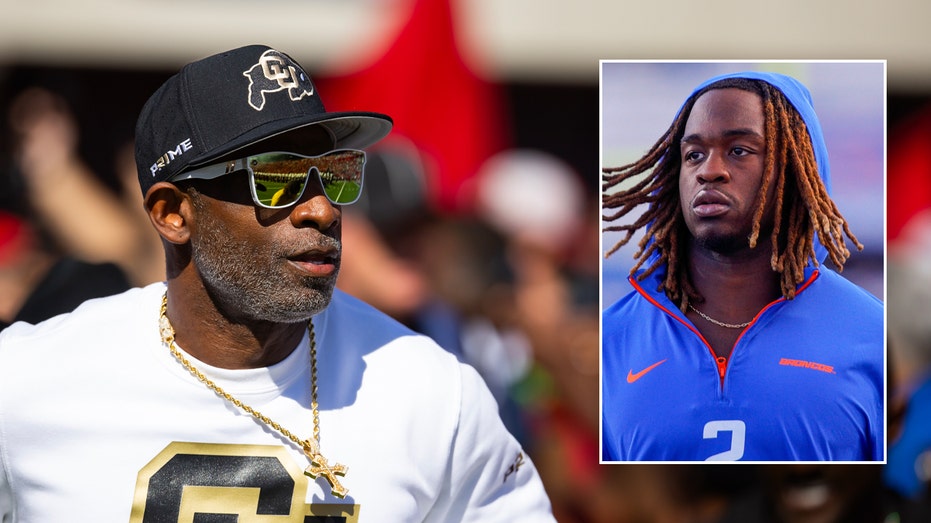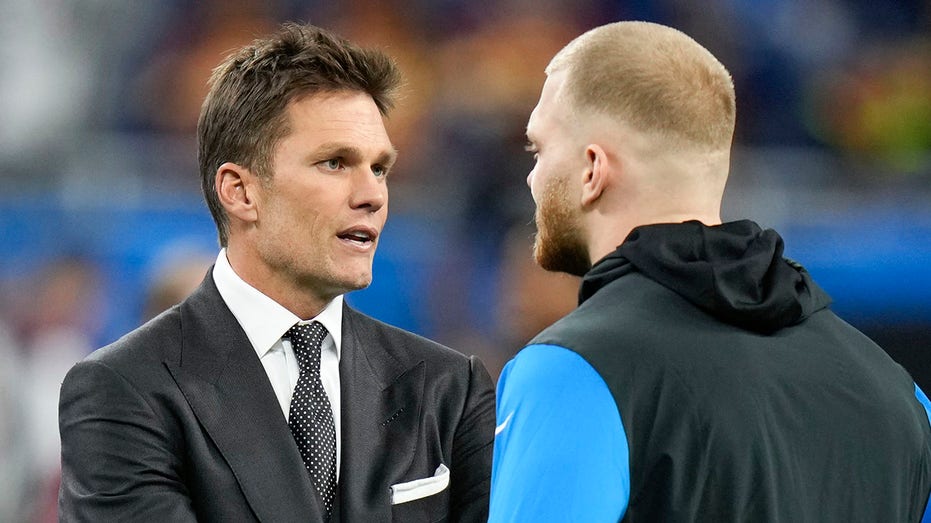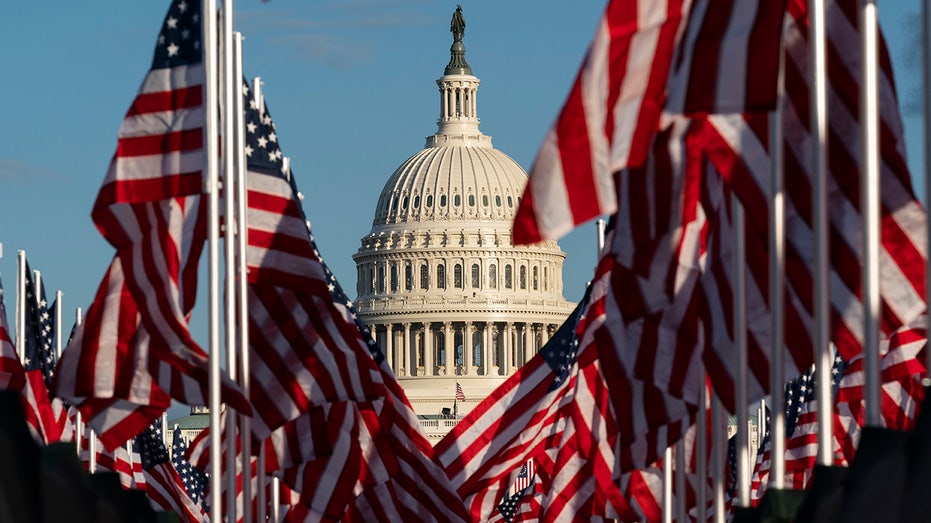- by foxnews
- 20 Jan 2025
‘All of a sudden it’s undrinkable’: why an entire US city has no clean water
‘All of a sudden it’s undrinkable’: why an entire US city has no clean water
- by theguardian
- 02 Sep 2022
- in news

Thirty-year-old Kendrick Hart remembers the warning his father gave about Jackson, the capital of Mississippi, where they both still live: "They need to do something about that water before it gets bad."
Now that moment has come.
The overwhelming majority of people - more than 150,000 - in the predominantly Black city have now lost access to safe running water. Most had already been without drinkable water for more than a month, but flooding last weekend, caused by weeks of rain, further interrupted operations at the city's beleaguered main water plant. Currently large numbers have nothing come out of their taps, and for those that do, it must be boiled before being consumed.
The situation has raised questions about the impact of underinvestment since white families abandoned the city en masse. It also suggests how extreme flooding, exacerbated by the climate crisis, will take a toll on infrastructure.
"For the longest [time], I have been experiencing dirty water, and now we got to the point where we ain't got no water," said Hart, who was visiting a church on Wednesday where bottled water was being handed out. "It is like - wow. And I feel like it could have been something done a long time ago to prevent all this." He said he knew of people with no running water who were visiting friends and family members in the adjoining majority-white cities and suburbs to take showers.
The crisis is in an acute stage, with temperatures set to top 90F on Thursday and Friday. Schools have shuttered their buildings and gone virtual. The Mississippi emergency management agency announced water distribution plans on Thursday. The city has created water distribution points, and some community organizations are doing what they can to fill the gaps.
"We can't take a bath. We can't drink water and can't wash dishes. None of that," said Carolyn Moore said, who was sitting in a car at a church with friend Shelor Bell, with cases of bottled water in the back seat.Bell said: "It's been about a month now; first our water is coming out brown. Yep. It's coming out brown and all of a sudden it's undrinkable."And then it's hot; our water bill is high, and we can't even drink the water," she added. "And it's really affecting everybody."
Authorities declared an emergency on Monday, when limited staff at the main water treatment facility struggled to treat water arriving in far higher volumes owing to the flooding, and dealt with a pump failure.
But it is the capstone to years of problems. Financial and staff constraints and equipment malfunctions have long affected the city's water treatment facilities' operations. The larger of the two treatment plants has been plagued with incessant disruptions leading to repeated "boil water notices" indicating that the water is not fit to drink without boiling first. Since 29 July, the entire city has been under a boil water notice.
Even when the city can provide water, it is often not enough. The system contends with persistent low pressure, which leads to an inability to flush toilets and have showers. The city also has a prevalence of lead water pipes, which pollute drinking water with a neurotoxin dangerous for children's developing brains.
Activists say race may be a factor.
"At the root of this crisis is systemic racism, and the local and state governments' intentional negligence to redirect infrastructure funds that could have helped solve this issue years ago," said the group Black Voters Matter on Thursday.
Between 1980 and 2000, Jackson changed from a majority-white population to a majority-black population. Thousands of white people left the city in the decades after the US supreme court forced public schools and facilities to desegregate, gutting Jackson's tax base and reducing investment in infrastructure.
Now the city has a population that is 83% Black and a poverty level of 25%, in a state with an 18.7% poverty level.
For these reasons, the crisis is prompting a weary sense of deja vu. In February 2021, when two back-to-back ice storms compromised an already fragile system, the city was without water for weeks, recalled Ronnie Crudup Jr, who is a member of the state's lower legislative house.
"Monday, when the water went out - I can't lie - I sort of, I guess, had a little PTSD thinking about last year's water crisis," he said.
Crudup said that the low water pressure was affecting his family. "It's been tough," he said. "My own household, I didn't have water; I've got three children that all immediately went virtual for school."
Currently the focus is on distributing water. On Wednesday, Sarah Rodriquez backed up her red car on the sidewalk in front of the New Horizon Church International. She said she came from Madison, 15 miles (24km) from Jackson, to donate drinkable water. "Folks talk through Twitter, and they say people need help here," she said. She had several cases of bottled water.
It is not clear when the water will be safe to drink. At a press conference, an official from the Mississippi department of health said boiling remained necessary for those whose taps still worked. "The water will be a little bit different in its appearance," said Jim Craig, senior deputy. "Residents may see it as cloudy, they may actually see a little colour to it as well, but it should be adequate for sanitation purposes, and if boiled should be safe to drink."
Longer-term help is in the pipeline. The Mississippi governor, Tate Reeves, on Tuesday sent a request to Joe Biden for federal assistance to deal with the problem. Biden soon after approved a measure to have the emergency response arm of the federal government step in and provide assistance. The US government will pay for 75% of the costs of dealing with and fixing the water treatment problem for the next 90 days.
The involvement of the state and federal governments has led to optimism that the issues will finally be addressed.
In an interview at the New Horizon church, 69-year-old Bobbie Johnson wondered why he even owed money for what came out of his tap. "We have to keep buying bottles of water," he said. "I've been buying bottles of water now for a while."Why should I keep having to pay the water bill, and I can't use my water, you know?" he said. "Only thing I can use my water for now, is probably to shower and wash my car."
- by foxnews
- descember 09, 2016
Travel tips for attending Trump's inauguration in DC: expert weighs in
Washington, D.C., has been gearing up for travelers ahead of Inauguration Day on Jan. 20, bringing Americans to the nation's capital as President-elect Trump returns to the White House.
read more


